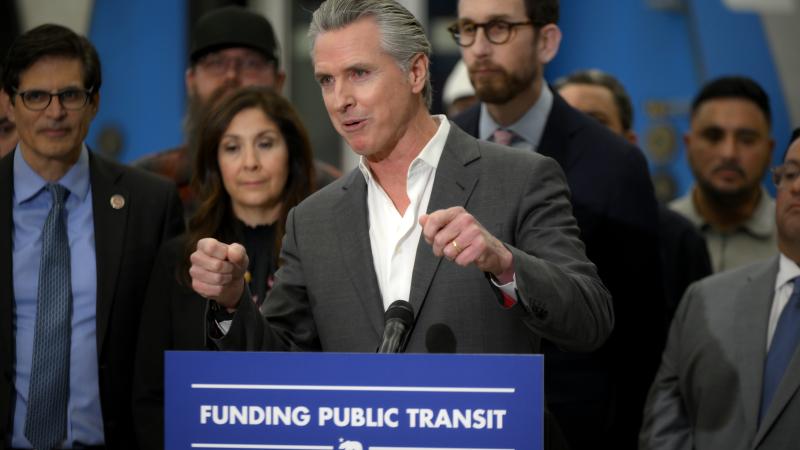Waves of climate lawsuits against oil companies likely to drive up consumer energy costs
While climate activists praise the lawsuits, critics say they are using the courts to push progressive causes.
Eight states and dozens of municipalities have filed lawsuits against oil companies for damages alleged to have been caused by climate change.
Climate activists hail the efforts as a means to hold fossil fuel companies accountable for damages suffered as a result of climate change.
Critics say the suits are a means to enact policies banning and restricting fossil fuels that would never pass legislatures or ballot measures, and if successful, they will drive up energy costs for everyone.
”They're basically attempting to bankrupt industries that they don't like to make them shut down,” O.H. Skinner, executive director of the Alliance for Consumers, told Just The News.
California made headlines last month with a lawsuit against Exxon Mobil, Shell, BP, ConocoPhillips and Chevron. The American Petroleum Institute, an industry trade group, is also listed as a defendant.
Richard Wiles, president of the Center for Climate Integrity, a nonprofit that tracks climate litigation, praised the lawsuit.
“California’s decision to take Big Oil companies to court is a watershed moment in the rapidly expanding legal fight to hold major polluters accountable for decades of climate lies,” Wiles said
New York, New Jersey, Delaware, Connecticut, Vermont, Minnesota, Massachusetts, and the District of Columbia have also filed similar suits.
Multnomah County, Oregon, which includes Portland, is one of many local governments suing fossil fuel companies. The Oregon suit accuses the companies of causing damages suffered during a heat dome event, which the suit argues wouldn’t have happened were it not for the carbon dioxide emissions from fossil fuels.
The county is seeking $51 billion for measures to improve health care services and infrastructure to protect the county from future weather events.
Many of these suits, Skinner said, exploit public nuisance laws, which are long-standing common law torts that seek to address local concerns and harmful conduct that impacts all members of a community.
According to a report by the Alliance for Consumers, these cases were expanded in the 1990s with litigation against major tobacco companies, which provided an “unprecedented windfall for trial lawyers and helped affirm the practice of using public nuisance claims to address larger societal issues.”
Skinner said that these climate cases will be expensive to defend, and those costs will filter down to consumers. It’s not just energy costs, but also all the thousands of products that are derived from petroleum. Ultimately, he said, the goal, as evidenced by the size of the settlements that are sought, is to drive the companies into bankruptcy.
”They’re trying to reshape the economy into the image they want using these legal theories, and the losers are everybody who wants to live their lives and buy the things they want to buy,” Skinner said.
He said, in many of these suits, the compensation the plaintiffs are seeking are going into funds that will pay for various social programs, including public transportation initiatives and other progressive causes.
”That’s what this is all about. It’s about pushing progressive lifestyle choices on everybody,” Skinner said.
None of the cases so far have seen a judgment in favor of the plaintiffs. One exception was a case in Montana this summer, which wasn’t related to nuisance laws.
In that case, Our Children’s Trust coordinated a group of young people to sue the state of Montana for violating provisions in the state’s constitution. The suit claims that, by prohibiting agencies from considering the impacts of carbon dioxide emissions when permitting fossil fuel projects, they were violating constitutional guarantees for a clean and safe environment.
In July, the court found in favor of the plaintiffs, and the state is appealing the decision.
With the public nuisance lawsuits, a key aspect that judges consider is if the requested relief will remedy the problem. Skinner said the defendants’ best arguments is that climate change is a global problem. So, it doesn’t make sense to hold any one company responsible for global carbon dioxide emissions.
”It's not removing carbon from the air. It's not stopping India from making new coal powered coal fired power plants. It's not making China stop,” Skinner said.
These suits, Skinner said, have provided a lucrative income stream for the trial lawyers, but the costs will be paid by everyone.
“For your average person, the average consumer, there's no way you win from this. It is all downside until these cases go away,” Skinner said.















